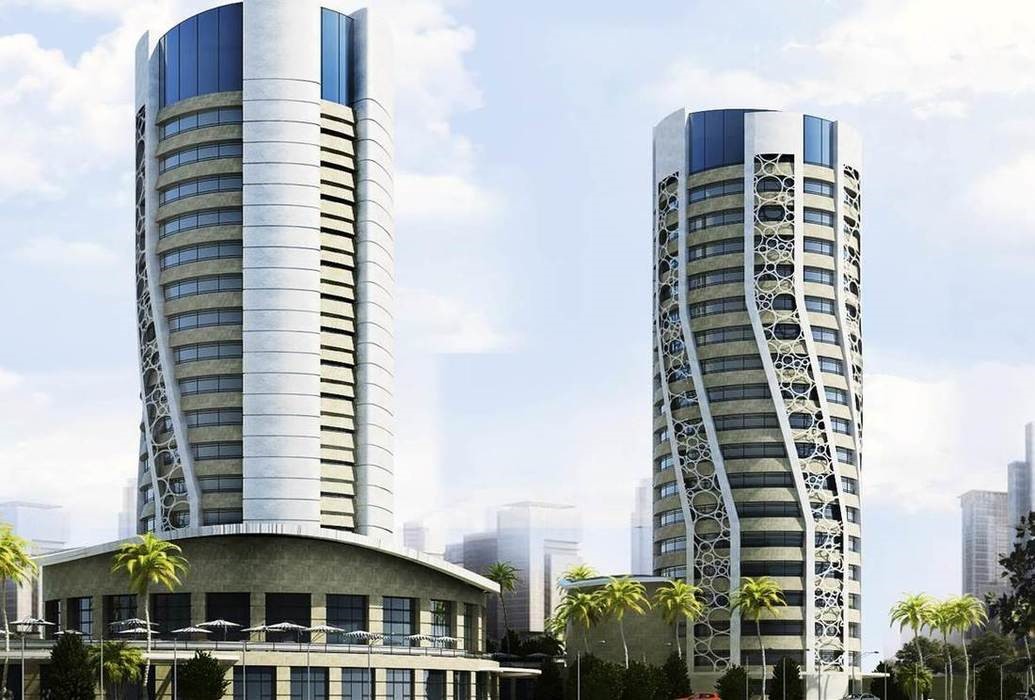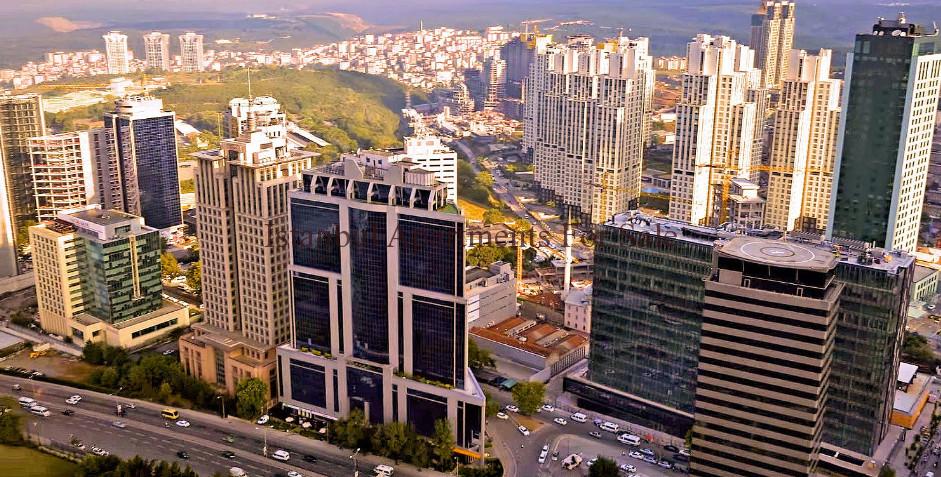Turkey's property market is poised for significant transformations in the upcoming years. With various driving forces such as urbanization, governmental policies, and foreign investment, potential investors should watch the unfolding trends shaping this dynamic market.
Urban Development and Renewal
Urban development initiatives are taking center stage in Turkey’s property market. Significant cities, particularly Istanbul, Ankara, and Izmir, are undergoing extensive urban renewal projects. These projects aim to replace outdated structures with modern, sustainable, and resilient buildings, creating a surge in the availability of new residential and commercial properties.

Foreign Investment Influx
Turkey’s real estate sector continues to attract foreign investors due to several strategic advantages:
Strategic Location: The country’s geographical positioning between Europe and Asia makes it an attractive destination for international businesses and travelers.
Citizenship-by-Investment: The government's initiative to grant Turkish citizenship to foreign nationals who invest a specific amount in real estate has spurred investment from overseas buyers.
Diverse Options: From luxurious villas in coastal areas to apartments in bustling urban centers, Turkey offers various property options catering to various investment preferences and budgets.
Technological Integration
The adoption of Proptech (Property Technology) is becoming prevalent in Turkey's real estate market. Digital platforms, virtual reality (VR) tours, and big data analytics are increasingly utilized for property listings, viewings, transactions, and market analysis, making the investment process more streamlined and informed.
Sustainable and Smart Buildings
Sustainability is gaining traction in Turkey’s construction sector, with more properties developed with energy-efficient designs and green certifications. Smart buildings equipped with advanced automation and energy management technology are also rising, catering to the growing demand for modern and sustainable living and working spaces.
Tourism-Driven Property Demand
As Turkey continues to be a popular tourist destination, there is a growing demand for short-term vacation rentals. Investing in properties located in tourist hotspots, especially coastal regions like Antalya, Bodrum, and Fethiye, can offer lucrative returns through holiday lets.
Turkish Real Estate Market

Carefully selected investment projects will allow you to reach an income of 8% per year.
With its pulsating energy and evolving dynamics, the Turkish real estate market has become a focal point for global investors seeking lucrative opportunities.
Amidst an environment where traditional charm meets modern luxury, the market trends indicate a sustained demand for properties that showcase the rich tapestry of Turkish culture and history. Investors are particularly captivated by the market's resilience, underscored by its swift recovery from global economic shifts and its continued path toward growth, propelled by a young, urbanizing population and increasing foreign interest.
Expectations for the future of Turkey's property market are buoyed by the government's investor-friendly policies, such as the Citizenship by Investment Program and strategic urban redevelopment initiatives, which have been instrumental in drawing in capital from around the world.
With a currency that extends a favorable exchange rate and a cost of living that allows for high-quality living standards, Turkey's properties stand out as residences and strategic investments that promise yield and value appreciation.
Moreover, the expansion of infrastructure, from transportation to healthcare, augments the appeal of Turkish properties, enhancing both their tangible value and the quality of life they offer. This, combined with the nation's unique geographical position, bridging the East and the West, has solidified Turkey's reputation as an investment haven.
In this place, investors can anticipate a safe harbor for their funds and the potential for robust returns. Whether it's the bustling metropolis of Istanbul, the coastal havens of the Aegean, or the capital's political and cultural heartland in Ankara, the Turkish real estate market presents a mosaic of opportunities that beckon the discerning investor.
Residential Real Estate in Turkey: Market Trends
Turkey's residential real estate market has long been a segment of keen interest to domestic buyers and a growing community of international investors. Driven by a unique confluence of economic factors, demographic trends, and government policies, the market presents an array of opportunities amidst Turkey's rich cultural heritage and strategic geopolitical location,
As global investors scour the globe for favorable markets, Turkey's residential sector stands out for its vibrancy, growth potential, and resilience.
Residential Real Estate in Turkey: Industry Overview
Turkey's residential real estate industry is a complex and multifaceted sector characterized by its rapid response to internal and external economic stimuli.
The country's real estate market has historically benefited from Turkey's unique positioning as a bridge between East and West, attracting a diverse mix of buyers drawn to its vibrant cities, scenic coastal regions, and the allure of a lifestyle that blends modern amenities with traditional Turkish living.
In recent years, the Turkish government has implemented reforms and incentives to boost the real estate sector. These measures include reducing red tape associated with property purchases, offering citizenship to high-value investors, and actively promoting the development of new housing projects to meet the growing demand.
These strategic moves have fostered a hospitable environment for the real estate industry, with Istanbul, Ankara, Antalya, and Bodrum becoming desirable markets for residential investment.
Istanbul leads as the epicenter of high-end residential projects, while the other cities offer a mix of options ranging from luxury seafront properties to affordable suburban homes.
The market's dynamism is also propelled by the Turkish population's growing appetite for homeownership, a trend bolstered by cultural inclinations and the rising affluence of the middle class.
Furthermore, the appeal to foreign investors is amplified by relatively low entry prices compared to other European markets, coupled with the potential for high rental yields and capital appreciation.
What is the current Turkey Residential Real Estate Market size?
As of the latest figures, Turkey's residential real estate market size represents a significant portion of the country's economy, with continual year-on-year growth. While exact numbers fluctuate with market conditions, Turkey has experienced an uptick in residential sales, thanks partly to favorable currency exchange rates that have attracted foreign buyers.
These international investors come from various backgrounds, seeking opportunities in a market that offers both short-term rental returns and long-term property value growth.
The Turkish Statistical Institute regularly publishes data highlighting sales volume, with notable increases in transactions involving foreign buyers.
These transactions are not only a testament to the market's size but also to its potential for expansion. The market's breadth is underscored by the development of new residential complexes, often equipped with modern amenities and aimed at improving the overall standard of living.
Internal migration patterns also influenced the market size, with many Turkish citizens moving from rural areas to urban centers, increasing the demand for residential properties in major cities.
The result is a market that grows outward with new developments and upward, as seen in the rising skylines of cities like Istanbul.
Commercial Real Estate in Turkey Market Trends
Turkey's commercial real estate landscape has been a testament to its robust economic narrative and strategic emergence as a pivotal commercial hub between Europe and Asia.
Navigating through unprecedented global shifts, Turkey's commercial property sector remains an exemplar of resilience and opportunity, fueled by a growing economy, strategic investments, and an advantageous geopolitical position.
With its sights set on future growth, the Turkish commercial real estate market beckons investors with a promise of diversity and potential.

Commercial Real Estate in Turkey Industry Overview
Turkey's commercial real estate sector reflects the dynamism of a country that has made significant strides in its economic development.
The industry is characterized by a diverse portfolio of offerings, from high-grade office spaces in the heart of bustling metropolises like Istanbul and Ankara to expansive industrial estates serving a burgeoning manufacturing and logistics sector and retail spaces that cater to a society with an increasing appetite for consumerism.
The industry has been pivoting towards innovation and sustainability, with many properties adopting green building standards and intelligent technologies. This evolution responds to global environmental concerns and a strategy to enhance commercial properties' long-term value and appeal.
Moreover, Turkey's strategic location as a gateway to European and Middle Eastern markets has augmented its desirability as a commercial investment destination.
The robust tourism growth has also spurred development in the hospitality sector, with new hotels, resorts, and serviced apartments cropping up to meet the demand.
What is the current Turkey Commercial Real Estate Market size?
Turkey's commercial real estate market has experienced significant growth over the past decade. While precise market size figures are fluid, reflecting the fast-paced nature of commercial transactions, Turkey has steadily climbed the volume and value of commercial property deals.
The market size is fueled by a burgeoning interest in areas such as e-commerce, which requires substantial logistical and warehousing solutions, and a flourishing start-up culture demanding flexible office spaces.
As the country's economic powerhouse, Istanbul captures a significant market share, with other cities like Izmir and Bursa also carving out substantial commercial real estate niches due to their industrial and trade activities.
According to industry reports and analyses from real estate conglomerates, the market size for commercial real estate in Turkey is propelled by domestic growth and the steady inflow of international capital. This indicates a confident market with the elasticity to accommodate both expansive multinational needs and the bespoke requirements of local businesses.
Despite global economic uncertainties, Turkey's commercial real estate market remains robust, underpinned by solid fundamentals such as a young population, an expanding middle class, and a strategic position in global trade routes.
This market is poised for further growth, driven by the country's ongoing investments in infrastructure, favorable business climate, and its growing reputation as a stable and profitable region for commercial ventures.
Global Real Estate Market Trends and Turkey
As global real estate trends emphasize diversification and sustainable development, Turkey's real estate market has become a notable destination for international investment.
Capitalizing on its pivotal geographical location and rapid economic development, Turkey offers a blend of growth, innovation, and resilience that resonates with global investors.
Its urban expansion, tech-forward infrastructure projects, and growing middle class present compelling opportunities that align with international investment trends.
Moreover, government incentives for foreign investors underscore Turkey's role as a stable, attractive market in the global real estate landscape, offering both security and potential in an ever-evolving sector.
Conclusion
As we look to the future, the trajectory of Turkey's property market remains robust, underpinned by resilient real estate prices and sustained interest in house prices, particularly in bustling city centers.
The Turkish property market presents attractive opportunities for real estate investments, even as it navigates challenges like rising interest rates and the quest for economic stability.
With proactive measures from the Housing Development Administration and strategic oversight by the Central Bank, the housing market is poised for continued growth.
The coming years hold promise for investors and stakeholders, shaped by sound property management and the potential for healthy returns in a dynamic economic landscape.
Related Articles:


